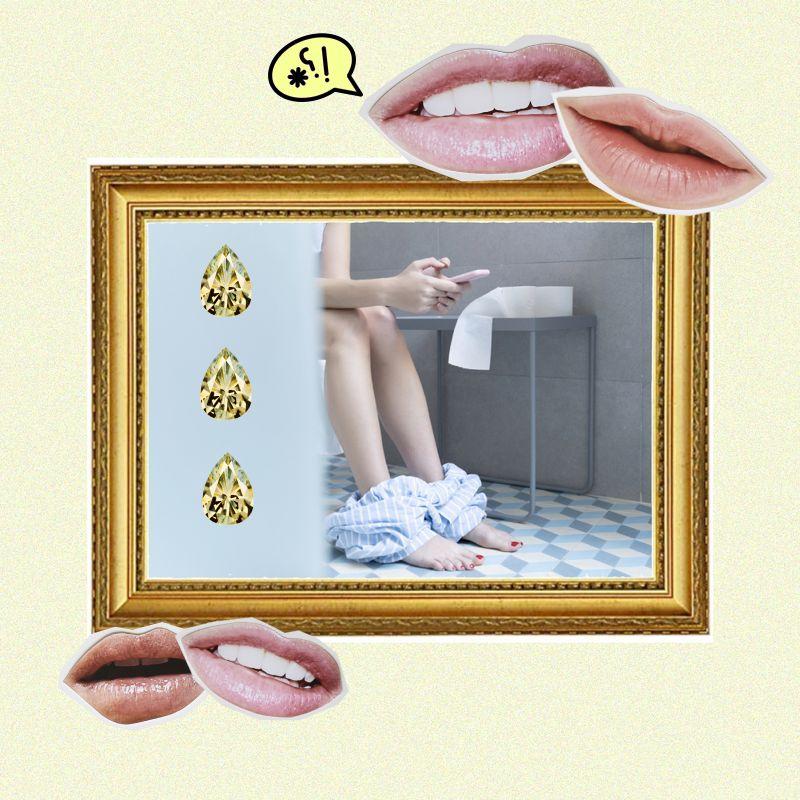Is it really necessary to pee after having sex?
Let's get to the point: when you have sex, do you pee afterwards? Perhaps it is a question that you have never asked yourself or, on the contrary, is it a recommendation made by doctors, gynecologists, relatives or your friends, with the aim of avoiding infections?
According to the Mayo Clinic, women are more likely to suffer from urinary infections than men, because our urethra is shorter, and this increases the probability that bacteria will 'travel' more easily to the bladder.
It may be that you have already suffered from them (we do not need to comment on the hassle involved) and, whether you have already experienced them or not, you will like to know something related to them and the question of whether you should pee after sex.
Megwyn White, director of education at Satisfyer and a sexologist (contributor to the Summit on Sex and Medicine and speaker at the New York City Assembly), explains: "Despite what is believed to the contrary, it is not strictly necessary to urinate after sex – because there is no scientific evidence to prove that this prevents an infection – however, it is not bad either, so it is not too much, what I do recommend is to use a specific wipe for the genitals after intercourse, to ensure that we kill any bacteria especially if you usually have urinary tract infections".
Home with a sick toddler and bored as hell, I think today's the day I learn how to make a hot dog octopus
— Sarah as per usual Mon Jun 07 15:52:40 +0000 2021
On the contrary, Adriana Brull Esteve, a general health psychologist and clinical sexologist, believes that it is best to urinate after having sexual intercourse: "It can reduce the risk of post-coital urine infections in women by up to 80%, since In this way we can expel any bacteria that has passed during penetration.During sex, we can be exposed to microbes, bacteria and secretions present in the genital area, which can have access to our urinary tract through the anus or urethra, thus causing a infection. Peeing will help us to drag some out, although we must bear in mind that it does not free us from 'all evils'".

The gynecologist and subspecialist in assisted reproduction, Javier Cordero, also recommends going to the service after having sexual intercourse. In the body, we have 'good' bacteria (which we doctors call 'microbiota'), and in the genital tract there are plenty. If a different bacterium is introduced (through penetration or other contacts), that microbiota is unbalanced and infections appear, both in urine and in the vagina, and urine, let's say, cleanses 'a little'. With the treatments of recurrent urine infections (which would be antibiotics), we usually give the patient the pattern of urinating after sexual intercourse, among others, "he concludes.
TIPS TO AVOID INFECTIONS
If you want to avoid disorders in the area of the urethra, follow the guidelines given by Megwyn White:
- Good hygiene comes first. "When you wipe, remember to do it from the vagina to the back, so that bacteria from the anus don't get into your urethra," she says.
- Always wear cotton underwear and clothes that don't squeeze you, "this helps prevent so much fluid and sweat from being generated, which are sometimes what cause the bacteria."
- Avoid using chemical soaps, as "they tend to kill 'good' bacteria and alter the pH, and advocate specific soaps for the vulvar area," says White.
- Keep a good diet. According to the expert, "probiotics help balance the microbiota."
- Being well hydrated is also key. "Look at the color of your urine, if it's dark, drink more water!" she points out.
- She drinks cranberry juice. "It will help you if you are prone to urine infections, as well as taking a red fruit supplement," she concludes.




